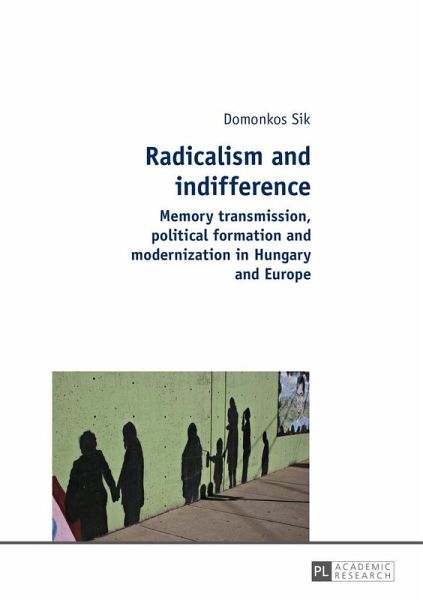
Radicalism and indifference
Memory transmission, political formation and modernization in Hungary and Europe
Versandkostenfrei!
Versandfertig in 1-2 Wochen
76,00 €
inkl. MwSt.

PAYBACK Punkte
0 °P sammeln!
Most theories of radicalization focus on the birth of antidemocratic ideas, semantics, behavior patterns and organizations. However, such focus is one-sided: radicalization is as much about the forgetting of historical lessons and the weakening of a democratic consensus, as the spreading of populist ideas. A case study of public and private processes of memory transmission in Hungary reveals how the ambiguous relation to modernization affects political formation: the failures provoke populist reactions, while the successes result in political indifference. The combination of these two politica...
Most theories of radicalization focus on the birth of antidemocratic ideas, semantics, behavior patterns and organizations. However, such focus is one-sided: radicalization is as much about the forgetting of historical lessons and the weakening of a democratic consensus, as the spreading of populist ideas. A case study of public and private processes of memory transmission in Hungary reveals how the ambiguous relation to modernization affects political formation: the failures provoke populist reactions, while the successes result in political indifference. The combination of these two political cultures creates a dangerous compound including both the opportunity for the birth of antidemocratic semantics and their ignorance. The author analyzes the potential of such "incubation of radicalism" on a European survey.














